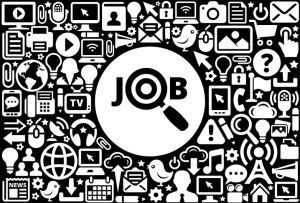Missing Link
We’re sorry, the article you are looking for is no longer available. Below are some Job Seeker related articles or you may use the search.
Spring Into New Opportunities with a Seasonal Job
As the sun shines brighter and temperatures rise, businesses gear up for one of the busiest hiring seasons…
Secrets to Success as a Travel Nurse or Travel Allied Health Professional
Travel nursing and travel allied health careers are thriving, offering professionals the opportunity to embark on exciting journeys…
Applying When You’re Overqualified—Strategic Advantage or Hiring Hurdle?
Should you apply to a job when you know you’re overqualified? Most job seekers in the U.S. and…
Master Complex Problems as a Software Engineer
Software engineering stands out as one of the most sought-after career paths in today’s technology-driven landscape. However, aspiring…
Nonprofit Hub: Your Source for Free Family and Worker Assistance
Life’s challenges—whether medical, financial, or professional—can feel overwhelming, leaving many individuals unsure of where to seek help. Nonprofit…
How to Calculate Your Total Compensation Package
When most people consider their income, they usually focus on the number printed on their paycheck. However, your…
Turn the Tables: How to Interview Your Future Employer
Job interviews have traditionally been seen as one-sided conversations, where candidates sit nervously while employers ask a series…
What Job Seekers Need to Know About the Caregiver’s “Second Shift”
If you’re considering a career in healthcare, you’re likely aware that it’s a field teaming with purpose but…
Revisiting the Express Blog’s Most Valuable Job Seeker Insights
Navigating the job market this past year required adaptability, connection, and strategy. Leveraging personal networks and AI-driven tools…
Why You Need to Upskill Now: Bridging the IT Talent Gap
The IT industry is evolving at an unprecedented pace. From cloud-native architectures to AI-driven automation, the rate of…
What to Do When You’re Ghosted After a Job Interview
Few experiences in the job search journey are as disheartening as being met with silence after a promising…
Empowering Older Job Seekers in the Job Market
The North American workforce is undergoing a significant change as more older adults choose to re-enter or stay…









